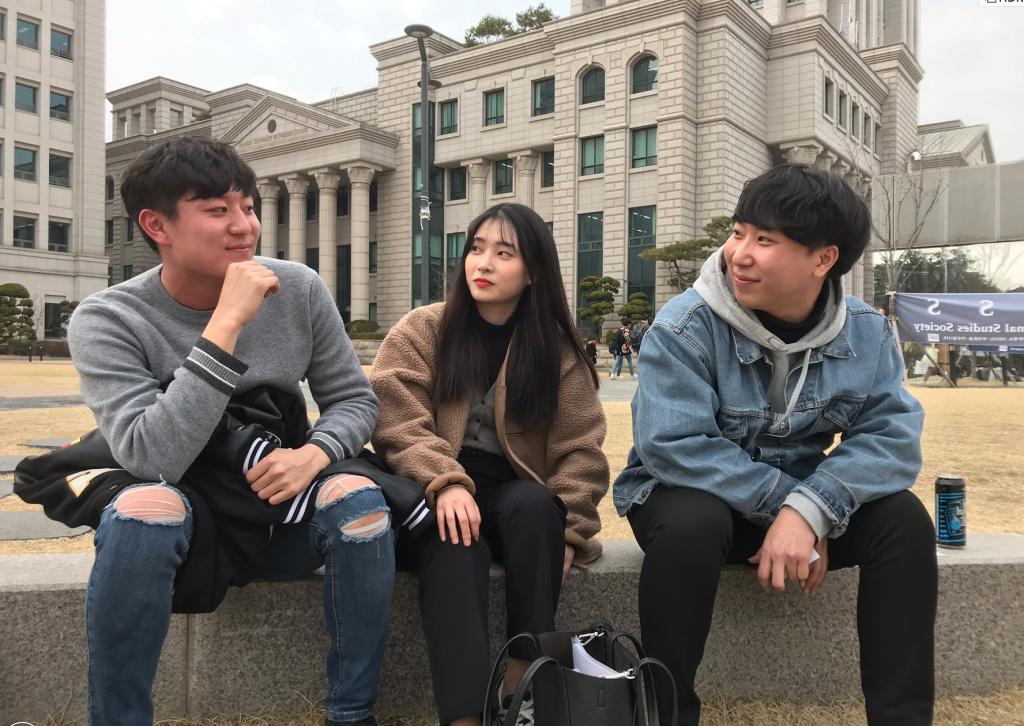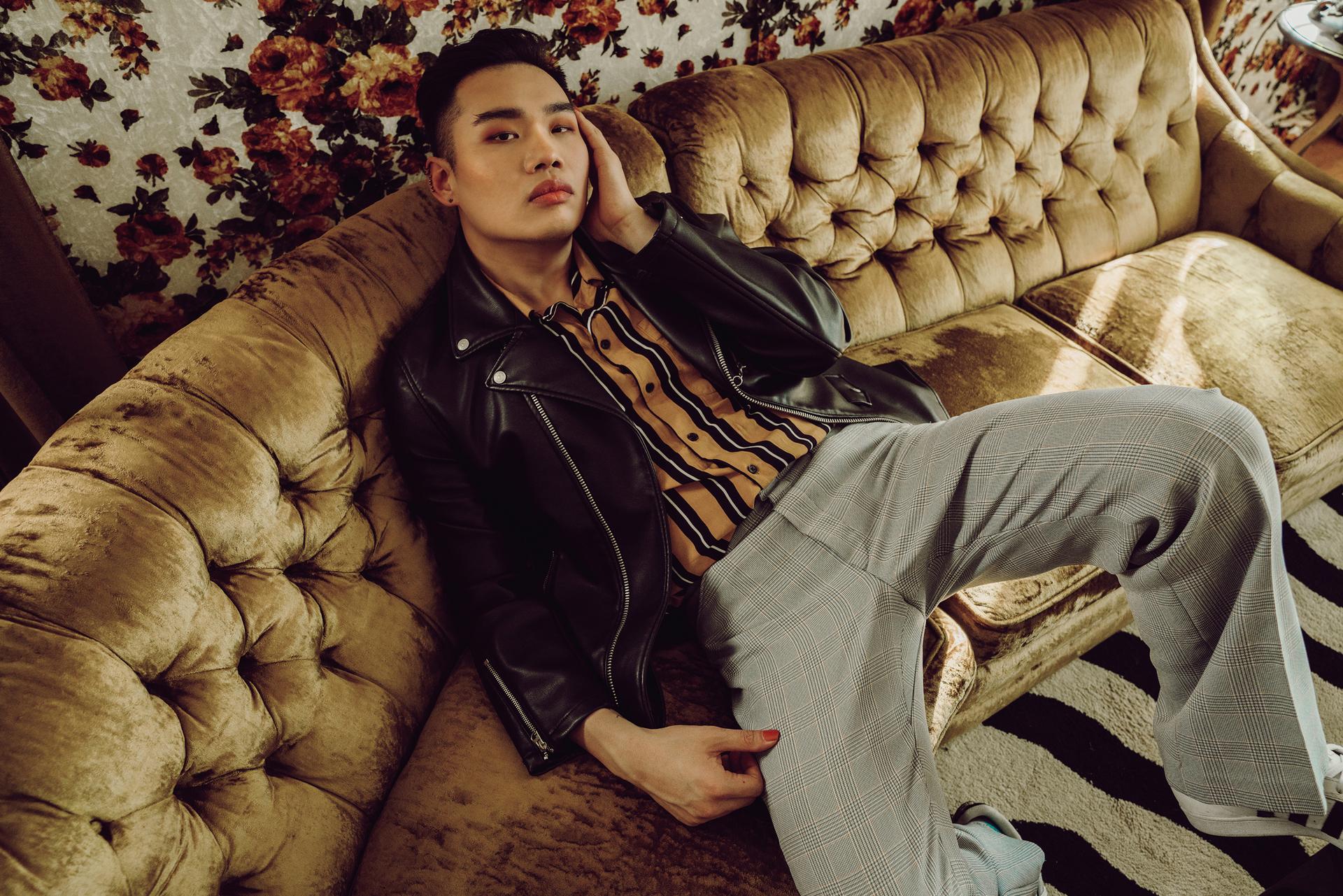A Korean American singer is defying stereotypes to make it in K-pop
Marshall Bang
Breaking into the hyper-competitive K-pop music industry is notoriously brutal. But what if you’re a foreigner — and gay?
Meet Marshall Bang, better known to audiences as MRSHLL. He’s a Korean American singer from Orange County, California, who’s trying to conquer South Korea’s music scene with his rich, chocolatey voice, and at the same time upend its culturally conservative mores.
Bang is debuting his solo EP in South Korea Tuesday with the FeelGhood Music label, after singing his way into the country’s consciousness last year on a wildly popular TV talent contest called “Show Me the Money,” a kind of hip-hop “The Voice.” Millions of viewers may not have known it, but they were watching one of the country’s few openly gay entertainers.
Being gay may not seem like it would be a big deal in the glitzy land of K-pop, which is awash in gender bending and populated by feminine-looking young men who are some of the industry’s brightest stars.
“They’re prettier,” Bang said. “There’s a lot more makeup. Sometimes it’s androgynous.”
But being openly gay is another story. South Korea bans same-sex marriage. Last year, its president said during a campaign debate that he disapproved of homosexuality and had “no intention” of legalizing it. Also last year, the government imprisoned an army captain for having sex with other male soldiers.
The number of openly gay celebrities can be counted on one hand. Best known is actor Hong Seok-chon, who was ostracized by the entertainment industry when it was publicized in 2000 that he was gay. It took him more than a decade to return to the public eye.
South Korea’s cultural conservatism is rooted in Confucian ideology, and doing what’s deemed proper — like marriage followed by kids. And then there’s the influence of fundamentalist Christians, who are a minority of the population but passionately opposed to gay rights. They have shown up in the thousands to try and drown out marchers in the annual gay pride parade in Seoul.
Bang is very familiar with the stigma of being gay in the Christian community. He grew up closeted in Anaheim and Buena Park, the oldest of three boys in a devout Christian household. His mom is an evangelical Christian pastor at a megachurch for Korean immigrants.
“Church is supposed to be a place where you can really be yourself but because certain subjects are untouchable — being gay was one of them,” Bang said, “I just kind of pushed everything down and suppressed it. And if anyone, you know, accused me of being gay, I would just be like ‘No, I’m not!'”
He skipped dating and immersed himself in music, singing in a church choir and listening mostly to Christian pop. But then in ninth grade, his friend lent him a Mariah Carey CD and that led him down a path to learning about other R&B and soul vocalists such as Marvin Gaye, Teddy Pendergrass, Patti LaBelle and Aretha Franklin.
Bang began making YouTube videos singing covers of the likes of Boyz II Men. People were taking notice of his voice — at church, school and on the Internet. He continued to sing and launched a dance troupe when he went to Biola University, a Christian college in La Mirada, California.
Candace Washington, who danced with Bang on the Xopoc Dance Crew, said he brought dance to a conservative campus and convinced the administration to start treating it as part of Christian ministry.
“To say Marshall is a trailblazer is an understatement because he literally changed the university in a short amount of time,” Washington said.
Bang was preparing for life as a performer after college. But then he got sick with laryngopharyngeal reflux, a type of acid reflux that damages the vocal cords.
Bang put singing on hold for more than a year and was hired by the nonprofit aid group, Invisible Children, which works to end the exploitation of child soldiers in central Africa. Then he moved to New York — a long-time aspiration — and worked as a hair stylist.
But in 2012, out of the blue, he was contacted by a TV producer who had spotted his old YouTube videos and wanted him to compete on a talent show. He went for it, and soon he landed in Seoul.
“My voice started to get better and better,” he said. “I don’t know if it was, like, a God thing or a universe thing.”
He didn’t win the TV competition, but decided to relocate to Seoul. A career as a singer felt within reach. So did living openly as a gay man. He had already confided in his two brothers, which went well. Telling his pastor mom was a lot harder, given the language barrier and her unfamiliarity with the LGBTQ community.
“I spoke to my mom in Korean. My Korean was just absolutely terrible. It’s very pre-schooly, like ‘Mom, I like boys.’ And so I think she was kind of confused,” Bang said. “There isn’t a lot of material out there for Koreans about what being gay is. And there definitely isn’t anything within the Korean Christian community on LGBTQ stuff.”
Bang no longer calls himself a Christian or attends church, choosing instead to believe in a “higher power.” But years of Bible study means he can still easily rattle off verses and incongruencies he finds in Christian teachings. He points out that sinners are welcomed to heaven as long as they “believe in God and believe that Jesus is my Lord and savior.”
“If being gay is a sin, I don’t understand why being gay is so much more worse than lying and cheating and all these other things that people readily accept in Christianity,” Bang said.
To this day, Bang’s parents are still processing his sexuality, and even after he came out to them, have insisted he marry and have a family. He’s asked them why he thinks he would choose to be gay.
“Why can’t you be gay?” he’s said. “And, they don’t have an answer for it.”
As to how K-pop fans will react to him, he has no idea. A Pew Research Center survey from a few years ago showed that 57 percent of South Koreans find homosexuality unacceptable.

His college friend Washington said she worries about him being out as an artist in Korea.
“There’s only so many of them,” Washington said. “He’s in the spiritual trenches — if you will — being so bold in who he is as a person.”
But among young people, attitudes about the LGBTQ community appear to be shifting. Seoul college student Woo Hyeok Lee said his Christian parents tell him not to talk to LGBTQ people. But he has a close friend who is gay. So does fellow student Hyun Woo Hong, 24. He said the young people he knows are very different from their parents.
“In our generation, if you can’t understand gay culture, then other people will say, ‘Why aren’t you understanding them? You’re not tolerant. What’s wrong with you?,'” Hong said.
For Hong, being gay doesn’t hurt an artist, but it doesn’t really help either. The most important thing to him is the music. And Bang? He can’t wait for people to hear his new EP, a mix of R&B-inflected, ’80s-influenced pop.
Bang dreams of topping the charts, and selling out stadiums around the world. On the personal side, he is still looking for a partner. When that day comes, he’ll have another talk with his mom.
“My Korean is so much better now,” Bang said. “It’s like we’re having full-on major conversations.”
